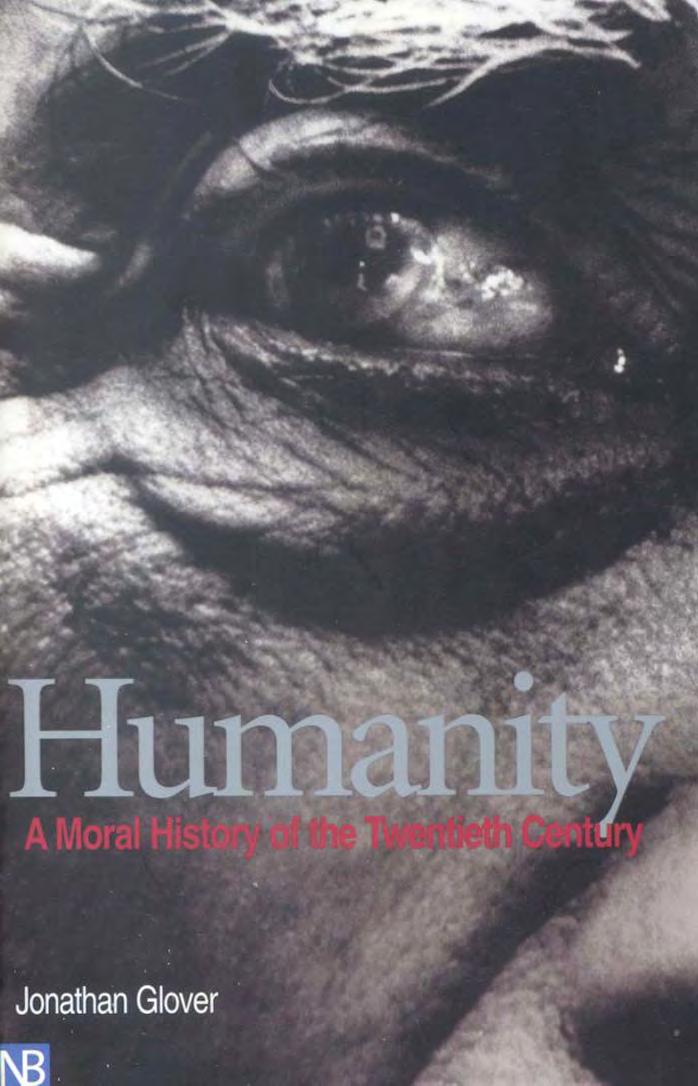Humanity: A Moral History of the Twentieth Century by Jonathan Glover

Author:Jonathan Glover
Language: eng
Format: mobi, pdf
Publisher: Yale University Press
Published: 2001-09-01T04:00:00+00:00
2 ESCAPING THE HOBBESIAN TRAP: PSYCHOLOGY
Co-operation to escape war is easier between democracies. It is easier if states are subject to some degree of international authority. But the restraining effects of democracy and international authority depend on the psychological climate. Escaping from the Hobbesian traps, like unchaining ourselves from tribalism, calls for the use of politics and psychology together.
To blame 1914 entirely on some combination of Bethmann Hollweg, Moltke, Berchtold, Sazonov, Poincaré, Grey and others is too simple. The ecological niche of statesmen is the population of their country. The mood of the public both influences who reaches the top and shapes the choice of policies. An adequate understanding of the trap of war starts with leaders, but has to go behind them to public opinion. (‘I would have been impeached.’)
This applies to understanding the period during a war as well as before it. The trap in which Erich Maria Remarque and Robert Graves found themselves was partly maintained by public satisfaction with the war: by Remarque’s uncomprehending old headmaster and by the parents Graves could not talk to about the war. The climate of opinion conditions everything.
In 1914 the outlook included tribal nationalism and Social Darwinism. Other aspects of the climate of the time were the beliefs countries held about each other, a concern with national honour, and some deeper, Hobbesian, ‘unspoken assumptions’.
Download
Humanity: A Moral History of the Twentieth Century by Jonathan Glover.pdf
This site does not store any files on its server. We only index and link to content provided by other sites. Please contact the content providers to delete copyright contents if any and email us, we'll remove relevant links or contents immediately.
The remains of the day by Kazuo Ishiguro(8997)
Tools of Titans by Timothy Ferriss(8393)
Giovanni's Room by James Baldwin(7345)
The Black Swan by Nassim Nicholas Taleb(7128)
Inner Engineering: A Yogi's Guide to Joy by Sadhguru(6792)
The Way of Zen by Alan W. Watts(6614)
The Power of Now: A Guide to Spiritual Enlightenment by Eckhart Tolle(5781)
Asking the Right Questions: A Guide to Critical Thinking by M. Neil Browne & Stuart M. Keeley(5772)
The Six Wives Of Henry VIII (WOMEN IN HISTORY) by Fraser Antonia(5514)
Astrophysics for People in a Hurry by Neil DeGrasse Tyson(5189)
Housekeeping by Marilynne Robinson(4445)
12 Rules for Life by Jordan B. Peterson(4303)
Ikigai by Héctor García & Francesc Miralles(4273)
Double Down (Diary of a Wimpy Kid Book 11) by Jeff Kinney(4268)
The Ethical Slut by Janet W. Hardy(4251)
Skin in the Game by Nassim Nicholas Taleb(4248)
The Art of Happiness by The Dalai Lama(4130)
Skin in the Game: Hidden Asymmetries in Daily Life by Nassim Nicholas Taleb(4004)
Walking by Henry David Thoreau(3960)
